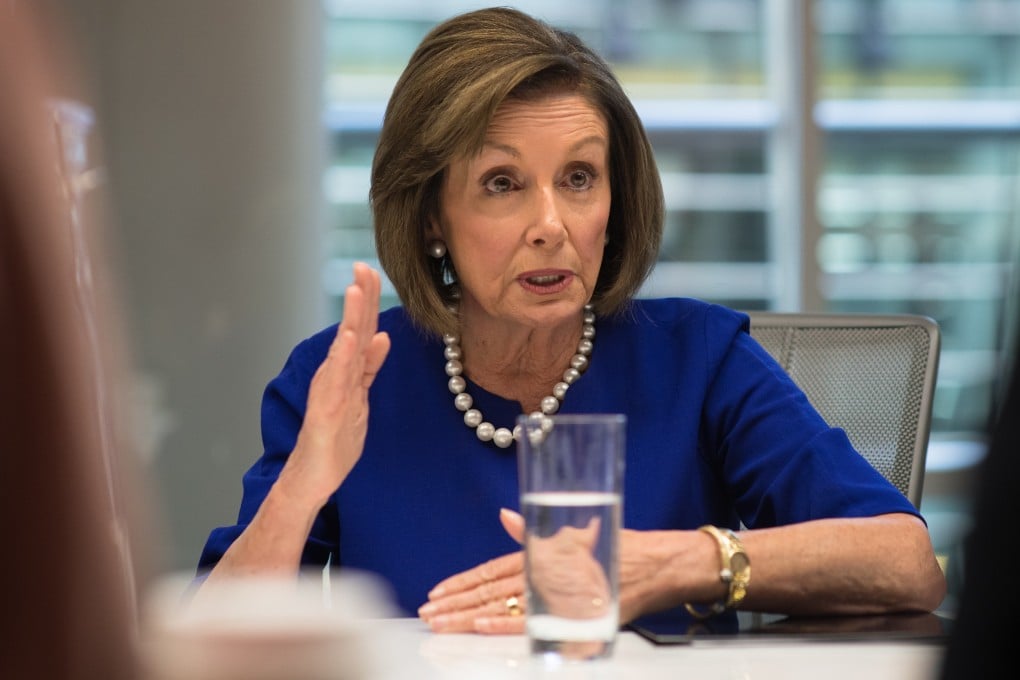Advertisement
Nancy Pelosi wants US to be tougher on China than Donald Trump by aligning with EU to pressure Beijing on trade
- House speaker says president weakened US position in trade war by alienating Europe with duties
- US needs to go beyond using tariffs as a primary weapon and instead engage allies like EU, Pelosi argues
Reading Time:2 minutes
Why you can trust SCMP

US House Speaker Nancy Pelosi says the Democrats would be tougher on China than President Donald Trump by aligning with the European Union to bring additional pressure on the world’s second-largest economy.
Pelosi said in a round table with Bloomberg reporters and editors on Friday that Trump was correct to identify China’s aggressive trade policy as a threat to the US. But she faulted his approach as ineffective and said he has further hobbled the US position by engaging in a trade conflict with the EU at the same time.
“We have leverage,” Pelosi said. “So, what did the president do? Alienate the EU by putting tariffs on them. So they’re now looking out for themselves vis-à-vis us.”
Advertisement
She said the US needs to be more “strategic”, moving trade policy beyond using tariffs as a primary weapon and instead engage allies like the EU that share US interests as well as its complaints about China.
“It has to be more comprehensive so that China knows they can’t do this any more,” Pelosi said.
Advertisement
Her remarks come as Trump is trying to conclude a “phase one” deal to ease the current trade war with China. However Chinese officials are casting doubts about reaching a comprehensive long-term trade deal with the US.
Advertisement
Select Voice
Choose your listening speed
Get through articles 2x faster
1.25x
250 WPM
Slow
Average
Fast
1.25x